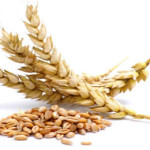Can Gluten Allergy Cause Eczema?
As the name implies, if you have gluten allergy, your body can be too sensitive to gluten (a kind of protein that commonly found in wheat). Even there is a health condition called celiac disease (an autoimmune disease – the over reactive response of immune system to eating gluten). There are some symptoms of gluten allergy, but can it cause eczema?
There are some chronic skin problems. The label ‘chronic’ means that the problem is more likely to come and go. In other words, it is difficult to completely get rid of it or it is usually incurable. However fortunately, it usually can be managed and many people with it can cope with the problem!
Eczema is one of common chronic skin problems. Actually, it doesn’t point to only one specific skin condition. Instead, experts put it as a group of medical health problems that can cause the skin to become irritated or/and inflamed [1]. So, there are several types of eczema.
Theoretically, any area of the skin can be affected by this kind of chronic skin problem. But many times, it affects specific areas of the body (particularly such as behind knees and arms). Since it is usually chronic, again it can flare periodically & then subside!
Unfortunately, the exact cause is still not fully understood. However, there are some theories.
Some experts think that the problem may occur due to a combination of different factors. A wrong respond of immune system and inherited tendencies of sensitive skin may be the answer [2].
Some people with chronic eczema can get flare-ups when they get a contact with coarse /rough materials. For others, an outbreak can be triggered by excessive exposure to detergent /soap or a contact with dander of animal.
Even feeling too cold /too hot, high stress, being sick (cold) may also have an effect and worsen the problem. In other words, the trigger factors can vary from person to person. In general, the flare-up can occur in respond to certain conditions or substances.
The good news, if you have this kind of chronic skin problem, you cannot spread it to others. Because it is not contagious! Additionally, it may also run in the family – in fact, it is pretty common found in people with a family history of the same problems or other allergies [3].
Talking about this kind of allergy, it is often referred to a health condition called celiac disease, as noted before. This allergy is also chronic, it can come & go.
Like in most things of allergy, the best and effective way to cope with the problem is by keeping far away from the trigger factor ‘foods that contain gluten’. Therefore in general, gluten-free diet is the core of the treatment plan.
Many times, people say that celiac disease is wheat allergy. But actually both conditions are medically not same.
Generally, wheat allergy is a kind of allergy that is triggered by some proteins found in wheat. But for celiac disease, it is triggered by one particular protein called gluten [4]. There are some foods contain gluten, and wheat is one of the most common sources.
So if you have wheat allergy, it may be relatively easier to cope with the problem since you only need to focus on wheat-free diet. But for celiac disease, wheat is not the single source of gluten.
The answer may vary since the symptoms of celiac disease can vary greatly from person to person.
Typically, diarrhea and weight loss are some classic symptoms of the problem. But in fact, most people with celiac disease only experience few or even no digestive symptoms.
 In addition to problems associated with digestive system (such as diarrhea or constipation), other symptoms may include [5]:
In addition to problems associated with digestive system (such as diarrhea or constipation), other symptoms may include [5]:
- Pain in the joints.
- Fatigue.
- Headache.
- Dental enamel damage.
- Decreased functioning of spleen.
- Heartburn or acid reflux.
- Tingling and numbness in the hands /feet.
People with celiac disease are at high risk of having frequently malnutrition episodes due to poor performance of small intestine in absorbing nutrients. For this reason, they are also at high risk of osteoporosis (lack of calcium) and anemia (lack of iron).
How about with eczema? Can it also be a sign or a complication of celiac disease?



